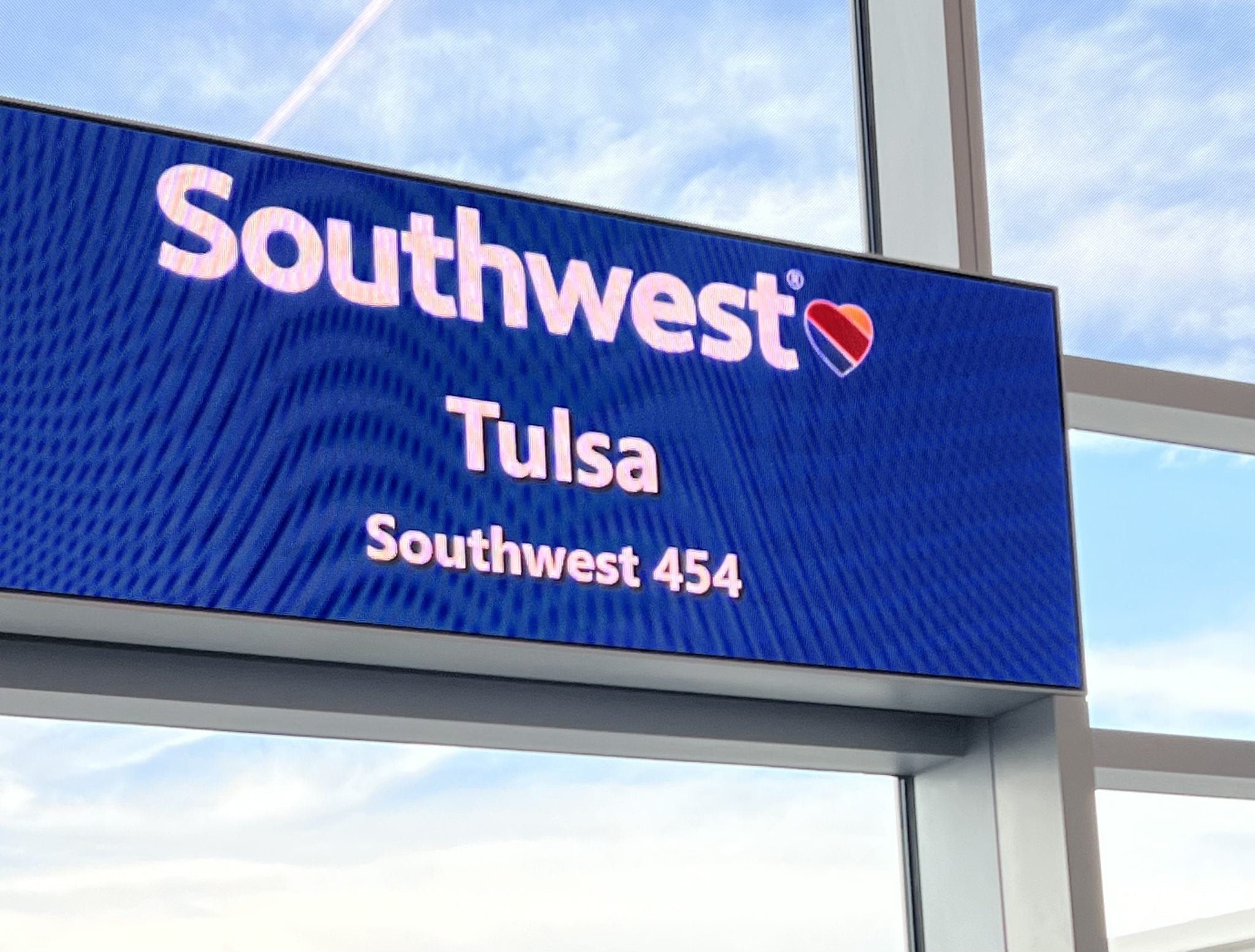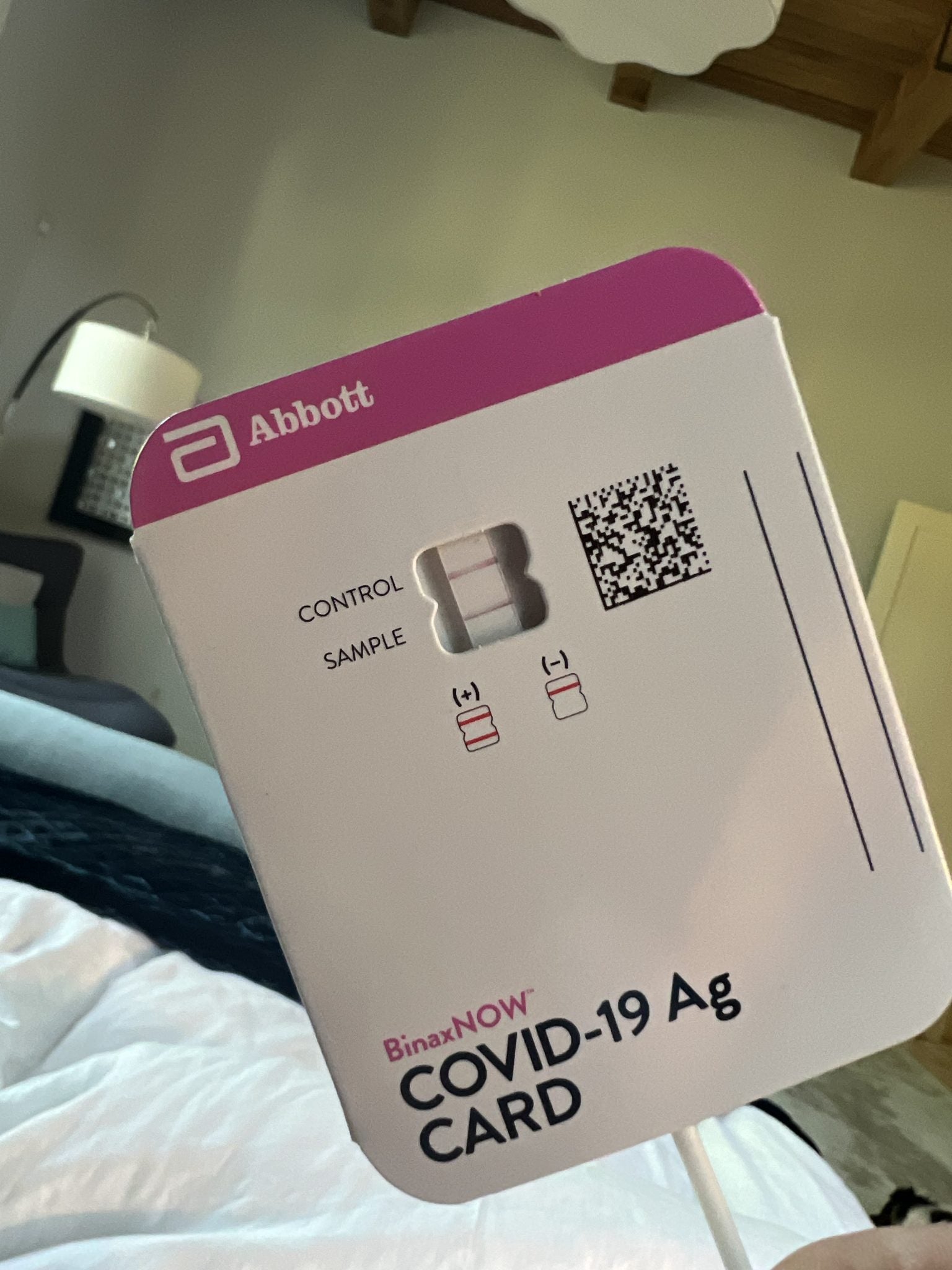If you’ve been reading these blogs at all over the past two years,
you might know that while I’m a frequent flyer, I’m not exactly fond of it.
Let’s just say I board a plane like it’s a survival mission.
Armed with noise-canceling headphones, deep breathing exercises, and constant glances at the flight attendants to ensure they are still calm.
But last night’s flight from Denver to Tulsa?
That was a whole new level of testing my nerves.
We were speeding down the runway, just about to be airborne, when out of nowhere, we just stopped.
An abrupt, dead stop.
The entire flight was hit with this collective wave of confusion.
You could feel the air change.
People were exchanging glances, and everyone was waiting for an explanation.
Before I could even process what had just happened, the pilot’s calm voice came over the intercom, telling us there had been a “system failure.”
I am ALL for pilots being transparent, but “system failure” is not something you casually toss out to a plane full of people seconds away from leaving the ground.
As soon as I heard those two little words, I had already made up my mind.
This plane would not get a second chance with me on it.
I was mentally mapping out the 10-hour road trip home and figuring out where I’d stop for snacks.
So, I did what any reasonable, freaked-out flyer would do.
I hit the flight attendant button and let them know that whatever a panic attack looked like, I was probably on the verge of one.
Fifteen minutes later, after arriving at the gate, I was being escorted off the plane.
I was 100% sure I was done with flying for the day.
But as I got off the plane and walked down the jet bridge, there stood the pilot.
He casually asked if I needed to discuss my decision to leave the flight.
Suddenly, he wasn’t just a pilot.
He had transformed into my personal therapist.
I half expected him to pull out a notepad and say, “So, tell me how long you’ve had trust issues with airplanes.”
Honestly, what could he possibly say that would change my mind?
I was already halfway to Hertz.
He began to talk me through what had happened and how they had handled it.
And explained why it wasn’t the catastrophe my anxiety had built it up to be.
He was so calm and steady that by the time he was done, my panic didn’t stand a chance against his unshakeable confidence.
It wasn’t just that he knew what he was talking about. It was the way he knew it.
His authority and expertise made all the difference.
The pilot’s assurance was louder than my panic.
And that’s when it hit me.
It wasn’t the problem that changed.
It was WHO I was listening to.
So, I found myself awkwardly asking for permission to get back on the plane.
Like making a dramatic exit and then waltzing back on was just my typical travel style.
Inwardly, I could have crawled with embarrassment into the overhead bin.
Outwardly, I strolled down the aisle with the pilot escorting me to my seat like I was a VIP returning from a spa break.
Acting like nothing had happened.
Completely ignoring the fact that 15 minutes earlier, I looked like I was basically fleeing the scene of a crime.
Much like my flight from Denver to Tulsa last night, life has a way of catching us off guard when we least expect it. One minute, you’re cruising along, feeling like you’ve got everything under control, and then, out of nowhere, a curveball is thrown your way.
Fear rushes in, and suddenly, panic starts to dictate your decisions.
But here’s the thing: it all comes down to WHO you are listening to.
You will always feel like running for the exit if fear or doubt is calling the shots.
Yet when you tune into God’s steady, confident voice, you’ll step back into situations you were ready to flee from.
His voice changes everything.
So, the next time you find yourself paralyzed by panic. ask yourself: “Who am I listening to?”
Because when you tune into the voice of someone who truly knows, someone who sees the whole picture, fear loses its grip, and peace takes its place.




Leave a comment
This site is protected by hCaptcha and the hCaptcha Privacy Policy and Terms of Service apply.